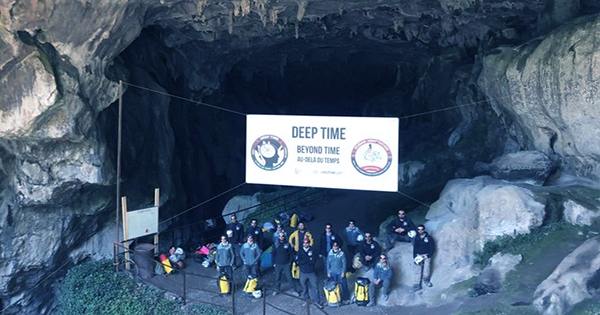The term “self-isolation” has become an annoyingly common part of our daily vocabulary over the past year, although a group of volunteers have no idea that spending 40 days in a cave has no natural light and no communication out of Earth.
As part of the Deep Time research project, 15 temporary troglodytes entered the Lombrines cave in France, which sought to examine the effects of extreme isolation on human physics and psychology. The group was in high spirits as they came out of the cave wearing sunglasses to help their eyes adjust to daylight. Surprisingly, they showed signs of losing their sense of time; with experimental leader Christian Clot explaining that most participants believed they had been underground for only a month. While inside the cave, the group slept in tents and used paddle bikes to generate electricity for their torches. They had no phones or watches, and had to fetch water from a 45-meter (146-foot) underground well.
Completely isolated from the sun and without telling the time, the group had to rely on their circadian rhythms – or body clocks – to decide when to eat and sleep. Meanwhile, the researchers used an array of sensors to monitor the team’s new body temperature, sleep patterns, social interactions and behavioral and cognitive responses to their new environment. The brain activity of the volunteers before and after entering the cave was also recorded. According to the Deep Time website, the project aims to provide important information about people’s novels and adaptations to extreme life.
This may include “lunar bases… Other extra-terrestrial regions,” as well as submarines or other underground habitats that may need to occupied in the event of a “severe climate disruption.” Explaining the motivation behind the project, Clot said that “our future as humans on this planet will evolve”, adding that “our brains need to better understand how to find new solutions no matter what the situation.”
Project organizers claim that these are the first studies to scientifically measure the effects of ultimate isolation, far from the first people living in a cave for 15 volunteer sciences. In 1962, a Frenchman named Michel Siffre proposed the existence of the first biological clock after recording his sleep cycle during a 63-day stay in a cave in the Alps.
















